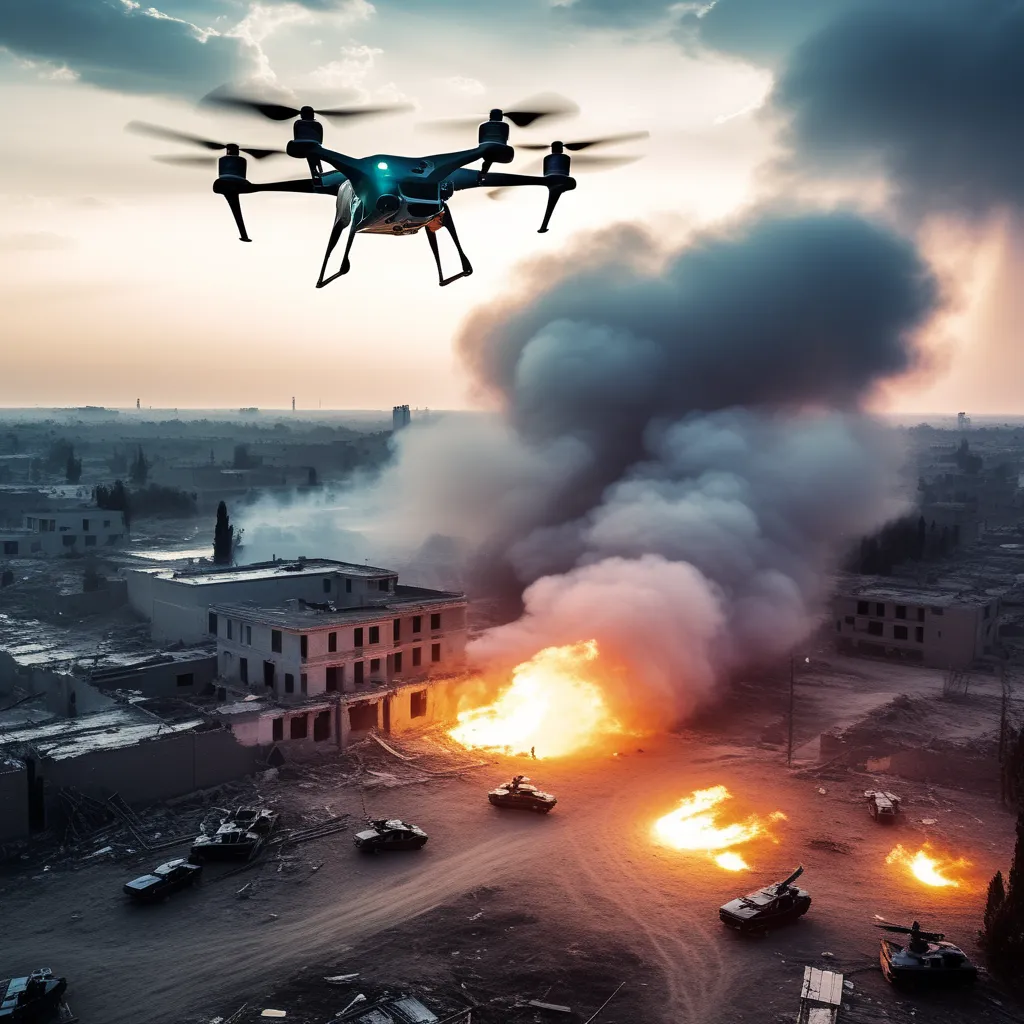The Impact of Drones on Modern Warfare and Surveillance
Drones, once confined to the realms of science fiction, have become a reality that is reshaping the landscape of modern warfare and surveillance. As someone who has witnessed the evolution of these unmanned aerial vehicles, delving into their impact on military operations and surveillance has been a journey filled with both marvel and contemplation. Join me as we explore the significant role drones play in reshaping the face of warfare, peppered with personal anecdotes that provide a glimpse into the complexities of this technological advancement.

Evolution from Toys to Tactical Tools
A Childhood Fascination
Growing up, drones were nothing more than fascinating toys flown in open fields. It's surreal to reflect on how these remote-controlled gadgets from my childhood have evolved into powerful tools shaping the future of warfare. The transition from playful curiosity to their strategic use in military operations signifies a technological leap with profound implications.
Precision Strikes and Reduced Collateral Damage
The Precision Revolution
One of the most notable impacts of drones in modern warfare is the ability to execute precision strikes. Personal anecdotes from news reports and documentaries vividly highlight instances where drones have targeted specific individuals or structures with surgical precision. The shift from large-scale bombardments to targeted strikes reduces collateral damage, but it also raises ethical questions about the nature of warfare.
Surveillance Advancements and Reconnaissance
Eyes in the Sky
Drones serve as omnipresent eyes in the sky, providing real-time surveillance and reconnaissance capabilities. Reflecting on instances where drones have been deployed for monitoring border areas or tracking the movements of potential threats underscores their role in gathering critical intelligence. The ability to maintain persistent surveillance without risking human lives enhances situational awareness but sparks debates about privacy and surveillance ethics.
Changing Dynamics of Battlefield Strategies
The Chessboard of Warfare
Drones have altered the traditional dynamics of warfare, turning it into a strategic chessboard where decisions are made with calculated precision. Personal stories of witnessing military briefings and documentaries on drone operations reveal a shift in how military leaders strategize. The ability to deploy drones for both offensive and defensive purposes introduces a new layer of complexity to military planning.
Remote Warfare and Psychological Impact
The Disconnect from the Battlefield
While drones allow for remote warfare, keeping human operators at a safe distance from the battlefield, they also introduce a psychological impact. Personal anecdotes from interviews with drone operators shed light on the emotional toll of conducting operations from thousands of miles away. The paradox of physical safety and the mental strain of remotely engaging in warfare raises questions about the psychological implications for those behind the controls.
Ethical Dilemmas and Targeted Killings
Navigating the Moral Gray Area
The rise of drones has brought forth ethical dilemmas, particularly concerning targeted killings. Reflecting on news coverage and discussions around drone strikes, it's evident that the precision capabilities also raise moral questions. The challenge lies in navigating the moral gray area where decisions to eliminate specific targets are made based on intelligence data, often in complex geopolitical contexts.
Counter-Drone Technologies and Arms Race
The Cat-and-Mouse Game
As drones become a dominant force on the battlefield, the development of counter-drone technologies is escalating. Personal encounters with news articles detailing the arms race between drone capabilities and anti-drone systems reveal a constant cat-and-mouse game. The challenge lies in staying one step ahead in technological advancements to either defend against or exploit the evolving capabilities of drones.
Civilian Impact and Privacy Concerns
The Blurring Lines
The impact of drones extends beyond military applications, seeping into civilian life and raising privacy concerns. Personal anecdotes of witnessing drones hovering over public events and urban areas underscore the blurring lines between military and civilian spheres. As drones become more accessible, the need for regulations and safeguards to protect individual privacy becomes paramount.
Future Implications and Global Governance
Charting the Path Forward
As we navigate the present landscape of drone technology, contemplating its future implications becomes essential. The development of global governance frameworks to regulate drone use, both in military and civilian contexts, is a topic that demands attention. Personal reflections on discussions around international agreements and debates on defining the rules of engagement for drones highlight the need for a collective effort to shape the ethical and legal boundaries.
Conclusion: Navigating the Drone Era
The impact of drones on modern warfare and surveillance is undeniable, and as we navigate this era of technological prowess, it's crucial to strike a balance between innovation and ethical considerations. From changing battlefield dynamics to the psychological toll on operators, drones present a complex tapestry of challenges and opportunities. As we witness the continued evolution of drone technology, the path forward requires thoughtful reflection, ethical discussions, and global collaboration to ensure that the impact remains aligned with our values and the principles of a just and secure world.

No comments:
Post a Comment